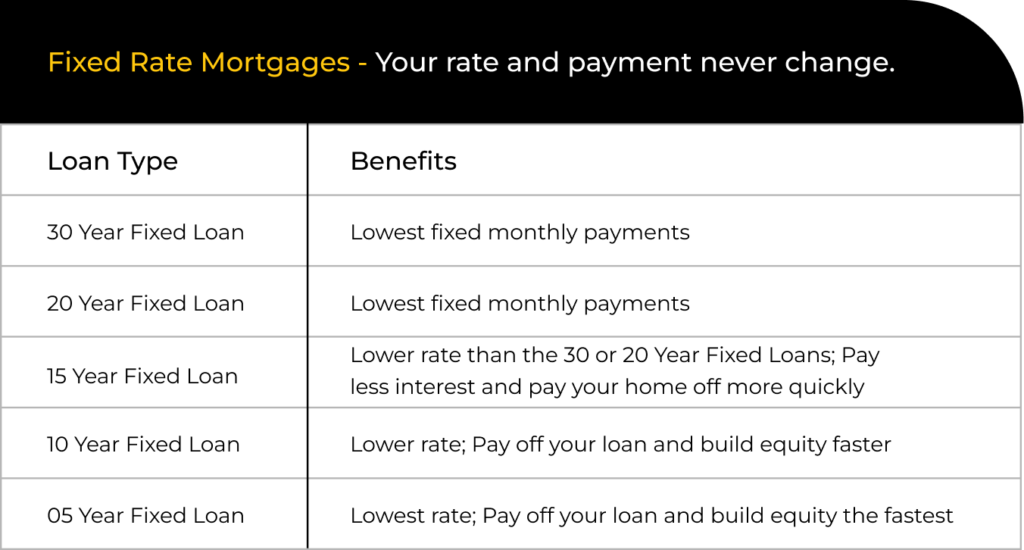Conventional Loans
What are Conventional Loans?

Conventional loans are mortgage loans that are not government-insured (such as FHA, VA, or USDA loans), but they typically adhere to the lending rules established by Fannie Mae or Freddie Mac. Conventional loans generally offer better terms, rates, and are usually cheaper than other types of loans. However, conventional loans often require an applicant to have good-to-excellent credit, manageable monthly debt responsibilities, a 5-20% down payment, and consistent monthly income. Conventional loans are best suited for borrowers with excellent credit and a minimum of a 5% down payment.
Conventional Loan Benefits
- Fewer limitations compared to government-backed loans.
- No upfront mortgage insurance is required.
- After achieving 20% equity, you can discontinue your private mortgage insurance (PMI). If the property is the borrower's primary or secondary residence, and the borrower has an acceptable payment record, the borrower has to request mortgage insurance termination based on the property's original valuation.
- Higher credit scores may result in a reduced interest rate.
- Less strict appraisals and property standards than FHA, VA, or USDA mortgages.
- Faster Loan processing.
- Term durations can vary from 10 to 30 years.
What are the Conventional Down Payment Requirements?
There are some general conditions for all conventional loans, whether they are conforming or non-conforming.
You will need to fill out a mortgage loan application and pay any necessary costs before having your credit report performed. The credit report will review your credit history and calculate your credit score. You must also provide supporting documents.
The general requirements for a conventional loan are below:
- Proof of income
- Pay stubs .
- Two years of federal tax returns
- Two years of W-2 statements, etc.
- Asset accounting
- Bank statements
- Investments to cover down payment and closing costs
- Employment verification indicating stable work history
- Miscellaneous documents
- Driver’s license or state identification card
- Social Security number
- Minimum credit score: 620
- Down payment
- 3% to 20% depending on credit and income circumstances
- Debt-to-income ratio: ≤ 43%
- Some flexibility with higher DTI under certain conditions
- Qualification challenges if
- Credit score is well below 620
- DTI exceeds 43%
- Down payment is significantly less than 20%
- Bankruptcy or foreclosure within the last seven years
Types of conventional loans


What types of property are eligible?
Most conventional loan programs allow you to purchase single-family homes, warrantable condos, planned unit developments, and 1-4 family residences. A conventional loan can also be used to finance a primary residence, second home, and investment property.
FAQ
A conventional loan is a mortgage that is not insured or guaranteed by the government.
Benefits include lower interest rates, flexible terms, and the potential to avoid private mortgage insurance (PMI).
Typically, a minimum credit score of 620 is required for a conventional loan
Yes, as long as you meet the lender’s criteria for credit score, debt-to-income ratio, and down payment.

